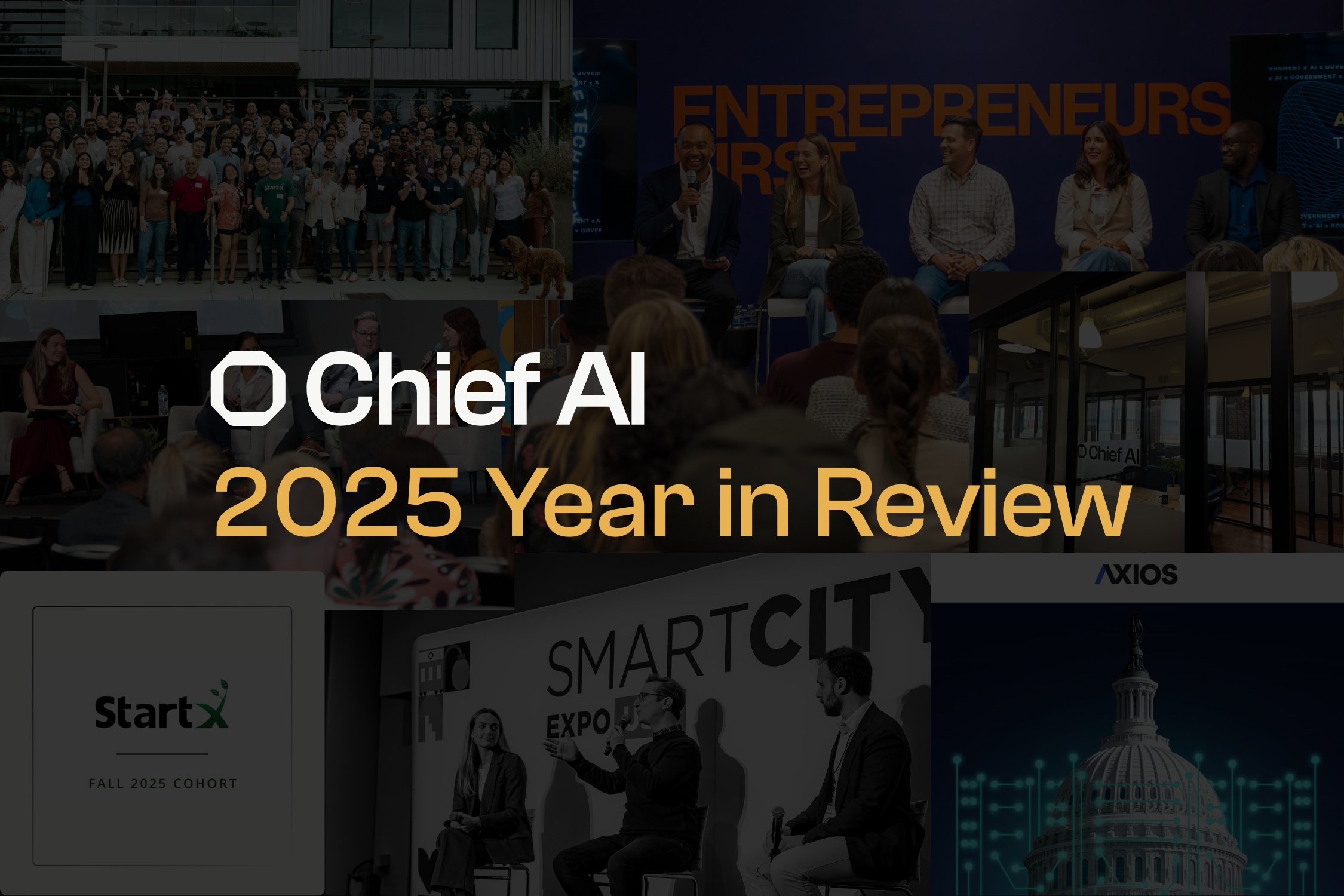Chief AI took center stage at this year’s State of GovTech. Pitching alongside 23 other startups, we won two of the three awards: Most Innovative Startup and Audience Choice. It was a powerful moment to see our mission resonate so strongly with the leaders working every day to make government more effective.

Hosted annually by CivStart, a nonprofit championing innovation in local government, State of GovTech brings together public servants, startups, and investors to reimagine how government works. We’re grateful for CivStart’s leadership in growing the govtech ecosystem.
We were honored to share the Most Innovative Startup award – selected by a cross-sector panel of judges – with Madison AI. Audience Choice was determined by the nearly 300 conference attendees.
What does it mean to build AI for government?
That’s the question our founder and CEO, Shannon Beckham, explored with technologists, policymakers, and startup leaders. Throughout the conference, one theme rang true: local and state governments need purpose-built, secure, and scalable solutions that reflect how they actually work.
From sessions hosted by the National League of Cities to startup demos and AI policy panels, the message was consistent – the future of govtech isn’t just about selling to government, it’s about building with it.
Key Takeaways
1. It's never been a better time to build in govtech.
The momentum for innovation has never been stronger. Budget pressures, workforce gaps, and rising public expectations are creating real urgency. At State of GovTech, founders, funders, and public leaders aligned on one thing: now is the time to build. The public sector is ready to partner if the solutions are purpose-built, secure, and practical.
2. Government needs purpose-built AI solutions.
Off-the-shelf tech doesn’t work in the public sector. Government teams operate with fragmented systems, limited data, and few technical resources. Many don’t have systems of record, and workflows are manual and complex. AI tools must be designed from the ground up to handle messy data, reflect actual workflows, and offer seamless, intuitive experiences for non-technical users. And because AI needs context to be effective, the systems themselves must be structured to source that context and deliver intelligence in a purpose-built way.
3. Trust is everything.
AI adoption in government starts with trust. That means trust in the startup team, the product, and the way data is handled. AI solutions must prioritize security, compliance, and transparency from day one – accounting for open records laws, tiered access levels, and auditability. With high staff turnover, tools must also capture institutional knowledge to ensure continuity. Building trust is the only way to build lasting partnerships and meaningful outcomes.
4. AI must empower the people doing the work.
As AI becomes more agentic, human oversight becomes more critical – especially in government, where work is fast-moving, high-stakes, and deeply contextual. The best AI tools empower the people already on the front lines. At the conference, cities like Danville and South Bend showed what this looks like: training teams, staying hands-on, and using AI to scale the work of public service. In this space, AI must support the mission – and the people delivering it.
Let’s Talk
At Chief AI, we’re building software for the people powering leaders – chiefs of staff, schedulers, policy advisors – who keep government running. We’re proud to be shaping tools that are purpose-built, trusted, and human-centered.
Want to explore how Chief AI can support your office? Let’s connect.







